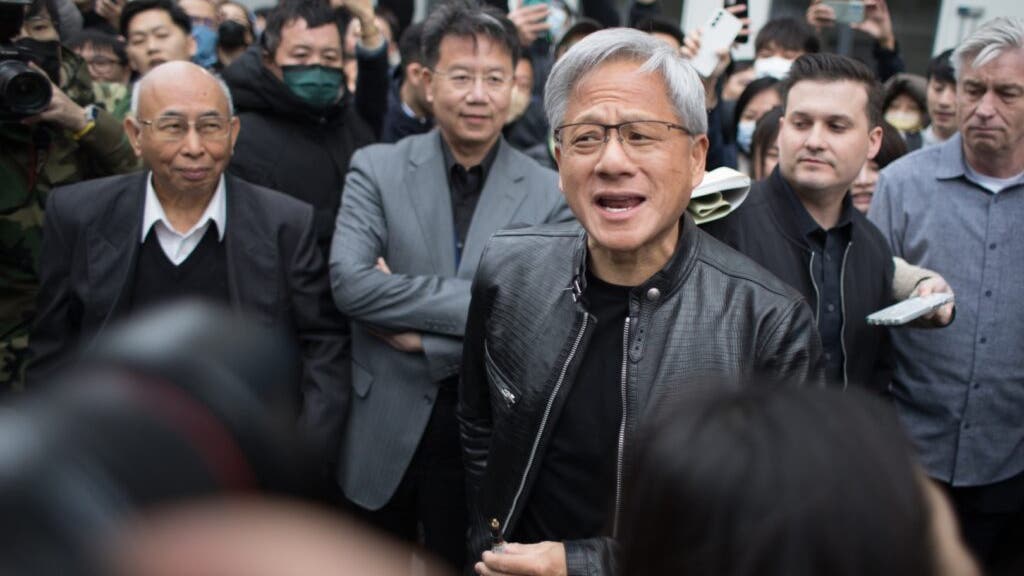Nvidia CEO Jensen Huang Raises Concerns Over 50% of AI Researchers Being Chinese, Calls for Reskilling in the U.S. During ‘Infinite Game’

Jensen Huang Calls for AI as a National Priority
Strategic Emphasis on Artificial Intelligence
Jensen Huang, the CEO of NVIDIA Corp. (NASDAQ: NVDA), recently delivered a compelling argument for lawmakers in the United States to prioritize artificial intelligence (AI) as part of the nation’s long-term strategy. Speaking at the Hill & Valley Forum in Washington, D.C., Huang emphasized the need for significant investment in workforce development to equip individuals for a future where AI plays a central role in various industries.
According to Huang, “To lead, the U.S. must embrace technology, invest in reskilling, and equip every worker to build with it.” He believes that embracing AI is not just essential for progress but crucial for maintaining a competitive edge on the global stage.
Understanding the Global AI Landscape
In his speech, Huang pointed out a critical factor in the AI competition: around 50% of the world’s AI researchers are based in China. This statistic underlines the urgency with which the U.S. must respond to the rapid advancements in AI technology happening abroad. Huang remarked that awareness of this competitive environment should inform how the U.S. strategizes its own AI capabilities.
Historical Context
Comparing the current AI transformation to earlier industrial shifts, Huang noted that the United States historically thrived by quickly adopting new technologies, such as steel and energy. He argued that this proactive approach is essential today and cautioned against merely worrying about the potential for job displacement that often accompanies technological advances. “This is an infinite game,” he stated, indicating that adaptability and innovation are vital for sustained progress.
The Importance of Workforce Development
Huang’s push for workforce development comes at a time when technological advancements are expected to outpace the available skilled labor. He described a looming global labor shortage, projecting that within the next decade, the world could face a deficiency of at least 50 million workers. To address this issue, Huang introduced "Groot N1," a foundational model aimed at humanoid robots. He proposed that these robots could help fill labor gaps as human workforce numbers dwindle.
Impact of Export Regulations
Huang’s comments come during a period of increasing tension between the U.S. and China over AI-related exports. NVIDIA has had to navigate new export restrictions regarding its H20 processors to China, which the company estimates could lead to an earnings drop of around $5.5 billion. These restrictions highlight the complex geopolitics that now surround technological innovations and the AI industry, emphasizing the need for the U.S. to not only invest in technology but also to create favorable conditions for growth within its own borders.
Navigating Supply and Demand
Despite challenges presented by supply constraints, particularly for NVIDIA’s highly sought-after Blackwell chips, Huang remains bullish about the future. In a recent interview, he noted that the demand for AI technology is "just incredible" as the company seeks to ramp up production capabilities. This optimistic outlook suggests that as AI technologies become more entrenched in everyday work, their application could extend to handling a significant percentage of jobs in various sectors.
Preparing for an AI-Driven Future
The messaging from Huang indicates a strong belief in the transformative potential of AI across multiple facets of work and industry. He envisions a future where AI could manage 20-40% of tasks, potentially reshaping how work occurs across the globe. This perspective not only makes a case for investment in technology but also highlights the urgent need for reskilling the workforce to adapt to these changes.
By fostering an environment that prioritizes AI and workforce readiness, the U.S. could position itself as a leader in the next phase of technological evolution, ensuring long-term sustainability and growth within its economy.





